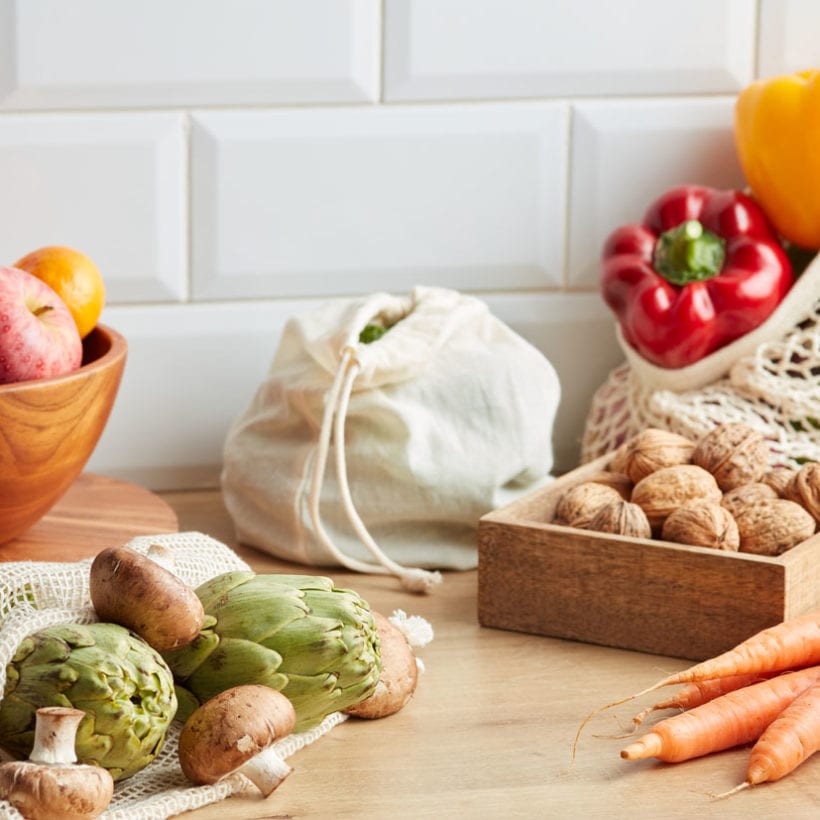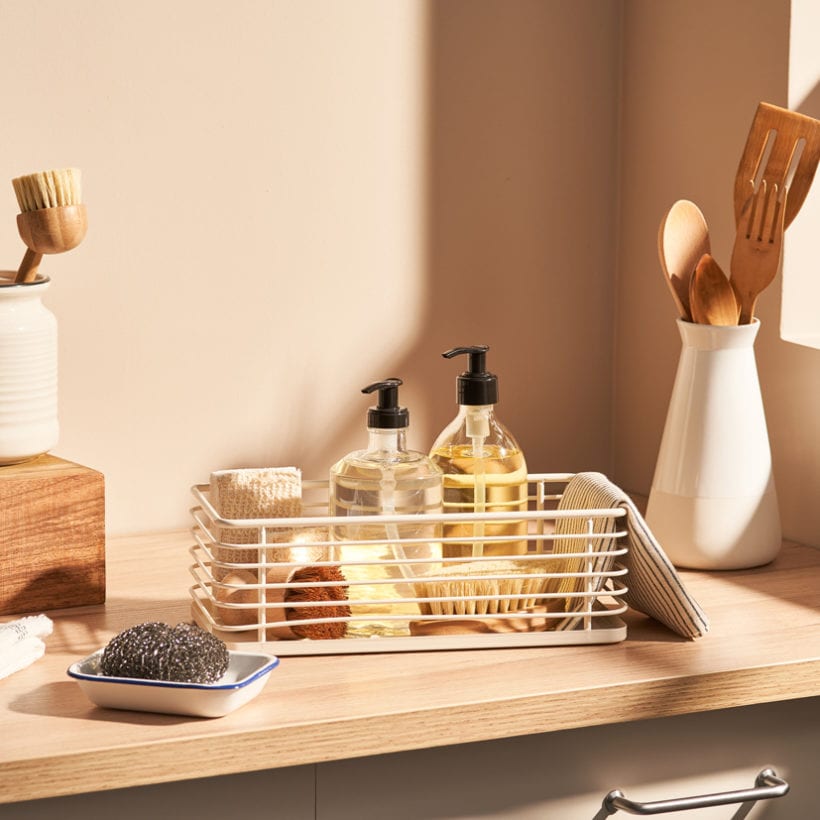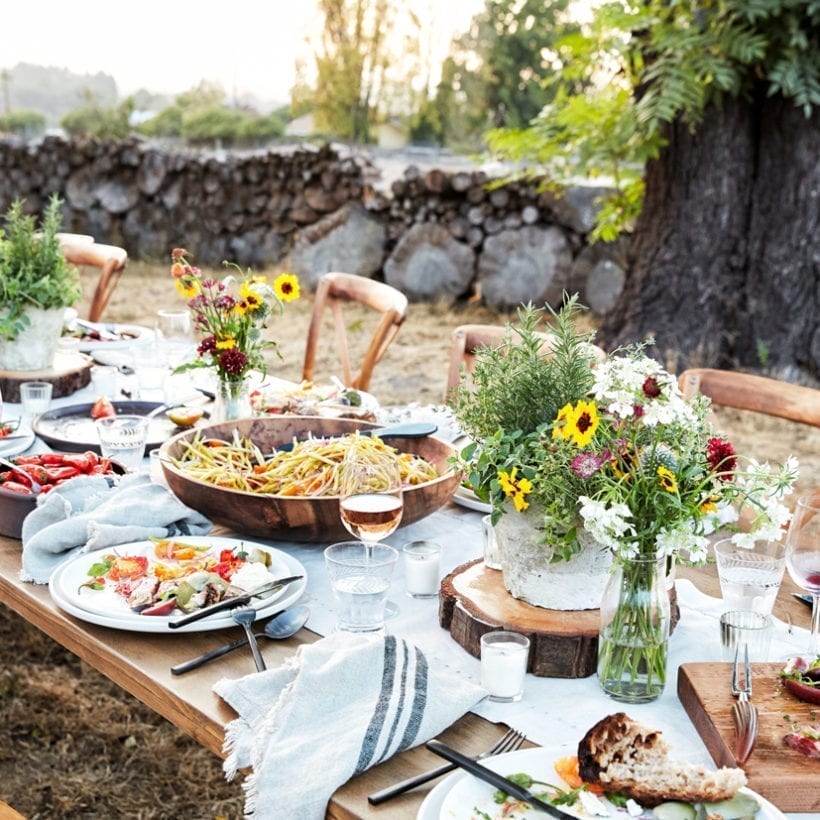Generally, as human beings, we are creatures of habit, which means many of the little decisions we make each day goes back to what we were taught growing up. While convenience makes it incredibly tempting to stick with those habits, many of them are outdated and, more importantly, they are downright wasteful. The good news is that there are updated versions of these older, wasteful products.
While living a completely sustainable life that produces zero waste, zero-footprint, and zero impact on the Earth is a noble aim, it’s not exactly possible for most of us. But that doesn’t mean that we can’t make an effort. Check out these small changes you can make today that will help you live a more sustainable life.
-
Lean into package-less produce.
The amount of plastic in the produce section of most grocery stores is astounding, but you don’t have to give in and bring all of that plastic into your home.
We’ve mostly eliminated plastic bags to bring all your groceries home, so why not apply that to the produce section as well? You can buy a set of wonderful mesh bags to fill up with fresh goodies instead of reaching for a plastic one in the store. If you struggle to find plastic-less berries or others in your usual store, try looking for a local farmers’ market, which should have more options for you.
-
Discover a wasteless period.
When you use pads and tampons one by one, you’re probably not thinking about how much waste you’re creating. As it turns out, your period does more damage than just ruining your day with cramps. Period products are considered medical waste and therefore are unable to be recycled. Aisle, a company that makes reusable period products, estimates that more than 20 billion pads and tampons enter landfills every year in North America alone.
Thankfully, new technologies and inventions are available to take the waste out of periods. If you still use pads, tampons, and panty liners, discover a new method instead, like period underwear or menstrual cups. Menstrual cups are reusable (usually silicone) cups that collect your flow rather than absorbing it. The cups are completely washable, reusable, and last for about a year. Imagine all the money and materials that go into a year’s worth of period when using tampons or pads! Period underwear, on the other hand, functions similarly to pads by absorbing menstrual fluid but are completely washable and reusable.
-
Rely on air drying goodness.
This one is a generations-old approach, actually saves you money, and could have some exciting beauty benefits. That’s right, we’re talking about air drying. By eliminating the dryer from laundry and the heat dry setting to doing dishes you save a ton of energy that would have gone to get those items dried. Hang dry your clothes in your room can actually release moisture into the air, which is seriously lacking during the winter months and dry climates. And if you apply air drying to your beauty routine, your hair will thank you for less harsh heat application.
-
Support businesses that are making conscious efforts to reduce waste.
Some brands are making big steps to reduce their impact on the Earth. Supporting these brands not only allows them to continue doing great work but encourages other brands to join the bandwagon.
For example, when you’re online shopping, look for brands that offer carbon-neutral shipping. The practice means that your package delivery results in a net-zero output of greenhouse gases put into the atmosphere based on other actions the company takes.
When it comes to eating out, you might run into a lot of waste. To avoid this, look for restaurants that use compostable or entirely recyclable takeout boxes. You can also request that the restaurant does not include plastic ware or any other unnecessary plastic items.
-
Reduce food waste in your home.
In the United States, 80 billion pounds of food (aka 30 to 40% of the U.S. food supply) are wasted each year, according to Recycle Track Systems. If you’re known to throw out leftovers or let produce go bad, you’re contributing to this massive amount of waste.
In order to combat this, try implementing the “First-In, First-Out” (FIFO) rule which, yes, is an accounting rule, but is also one used by many restaurants in order to decrease food waste. It’s a simple rule: you use the food that came into your kitchen first. You can lean into this method by labeling your food with the day you bought it and stocking the newer food in the back of your fridge, or you can try to make a conscious effort to incorporate less recently bought foods into your meals every day.
In addition to using FIFO, you can begin composting in your home. Composting is the process of collecting food scraps to be added to solid in order to help plants grow, according to the EPA. While you might think composting is something only done on farms, it’s extremely doable right at home and actually makes a big impact when it comes to lowering your carbon footprint. Food scraps and yard waste currently make up 30% of the garbage that we throw out. Composting these materials instead of tossing them keeps them out of landfills, where they not only take up a massive amount of space but also release harmful greenhouse gases into the atmosphere.
In addition to sticks, leaves, and other outside materials, you can compost much of the food (and food materials) you don’t eat. The EPA recommends composting fruits, vegetables, eggshells, tea bags, coffee grounds (and filters), and nutshells.
We only recommend products we have independently researched, tested, and loved. If you purchase a product found through our links, Sunday Edit may earn an affiliate commission.







